For all the talk about America’s declining global influence, it’s worth mentioning that the Oscar awards were front-page news in just about every English-language foreign daily that I scan each morning, as well as in both French-language dailies I read. Compare that to the French equivalent, the Césars, which, in case you missed it — and unless you’re a film buff, you probably did — took place earlier this week. As for the Césars, among the highlights were the honorary award given to Quentin Tarantino as well as the ceremony’s host, Jodie Foster. To be clear, this isn’t a value […]
The Americas Archive
Free Newsletter

Will the collapse of Moammar Gadhafi’s regime be the salvation of Russia, Saudi Arabia and Venezuela? Even without a forcible overthrow of the “Brother Leader” and the uncertainty of a subsequent interregnum, a protracted Libyan civil war that damages the country’s energy infrastructure could drive energy prices back to 2008 levels. Joshua Schenyer, surveying the landscape, concluded grimly, “Regardless of what comes next in Libya’s lethal political standoff, the OPEC country’s oil sector is nearly certain to suffer, bringing long-lasting supply disruptions or even permanent damage. None of several potential outcomes is benign for Libya’s oil industry — the lifeblood […]
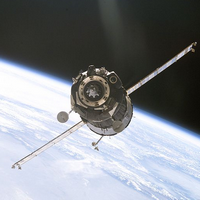
Several additional national security strategies have been issued in recent weeks, including the publication earlier this month of both an updated National Military Strategy and the first-ever National Security Space Strategy. Though these texts shed additional light on the priorities and perspectives of the Obama administration’s national security team at mid-term, they serve other purposes than just articulating strategy. The National Military Strategy (.pdf) starts by describing the security environment in which the Pentagon operates, the U.S. military’s core objectives and the Defense Department’s strategies for pursuing them. It then assesses the adequacy of U.S. military capabilities to achieve these […]

Editor’s note: This is the second of a two-part series on the G-20. Part I examined efforts to rebalance the global economy. Part II examines efforts to reform the global monetary system. Leading up to and throughout the G-20 finance ministers meeting last weekend, murmurs were heard about the role of the dollar and the need to reform the global monetary system. This is nothing new, of course, as a variety of major economies have expressed an interest in demoting the dollar since the global financial crisis broke out in 2008. The most recent examples came from Brazil and China, […]
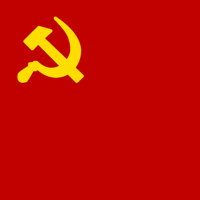
The 2008 and 2010 Latinobarometro Polls, taken in 18 countries of Latin America, underline the fact that, even though the GDP of most Latin American countries has been improving since 2001, there are deep flaws in democratic political systems throughout the region. The relative popular dissatisfaction stems from deep-rooted socioeconomic inequalities as well as distrust and lack of confidence in police forces, legislatures and political parties. There is also a growing popular consciousness of unfulfilled rights, leading to rising demands for their enjoyment. Peruvians are especially disgruntled. Peru’s economy has grown faster than any of the other bigger countries in […]
Argentina and Chile are considering entering into a long-term energy agreement. In an e-mail interview, Eric Farnsworth, vice president of the Council of the Americas, discussed Chile-Argentina energy relations. WPR: To what degree have Argentina and Chile been energy partners in the past? Eric Farnsworth: Chile has little in the way of its own traditional energy resources and has therefore long depended on Argentina for much of its energy supply, particularly natural gas. Under normal circumstances, Chile’s natural partners on the energy side would be Bolivia and Peru, rather than Argentina, since the gas that Chile now obtains from Argentina […]
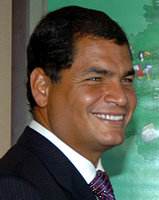
Editor’s note: This is the second of a two-part series examining Ecuador under President Rafael Correa. Part I examined Correa’s domestic policy. Part II examines his foreign policy. Ecuadorean President Rafael Correa’s radical “Citizen’s Revolution” has surprisingly translated into a foreign policy marked by pragmatism. Some of his moves — such as embracing China, Russia and Iran — have raised eyebrows, while others, such as the forced restructuring of Ecuador’s foreign debt, have prompted some foreign investors to question the wisdom of making long-term investments in the country. But his administration has also restored full diplomatic and commercial ties with […]
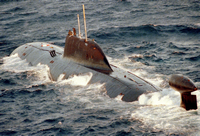
Naval power is characterized by fungibility and flexibility. Because of the relatively open nature of the seas, ships and fleets can be transferred between ports and crisis zones in order to conduct operations or exert influence. Indeed, one of the key appeals of naval power is the ability of warships to respond to crises in a variety of locations without requiring a longstanding political and infrastructural commitment. However, of all the major naval powers, Russia remains most tightly constrained by its unfortunate maritime geography. Russian warships based in the Arctic, Baltic, Black Sea and Pacific cannot easily support one another. […]
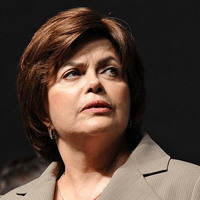
Brazil has profited handsomely over the past decade from its economic relationship with China. Exports to the People’s Republic have shot up nearly 20-fold since 2000, and last year alone, Brazil enjoyed a bilateral trade surplus of $5.2 billion, largely thanks to China’s seemingly insatiable appetite for iron ore and soybeans. In 2009, China supplanted the United States to become Brazil’s biggest trade partner, an arrangement that allowed Brazil to skirt the global recession by insulating it from the precipitous drop in exports that most other Latin American countries suffered. The relationship is not likely to change in the near […]

Editor’s note: This is the first of a two-part series examining Ecuador under President Rafael Correa. Part I examines Correa’s domestic policy. Part II, appearing tomorrow, will examine his foreign policy. Four years have passed since Ecuadorean President Rafael Correa joined his Venezuelan counterpart, Hugo Chávez, in Latin America’s revolutionary fold. Correa came to office promising to usher in a new era in Ecuador and put an end to the “dark night of neoliberalism.” Now, despite some notable successes, there are increasing doubts about the Correa administration’s stability and longevity as well as about the legacy it will leave behind. […]
Saudi Arabia is in the process of developing its domestic nuclear energy capacity, and recently concluded nuclear cooperation agreements with Japan. In an e-mail interview, Giacomo Luciani, Princeton global scholar and scientific director of the international energy program at the Paris School of International Affairs, discussed Saudi Arabia’s nuclear energy policy. WPR: What is the history of Saudi Arabia’s nuclear energy plans? Giacomo Luciani: The history of Saudi Arabia’s nuclear energy plans is actually very recent. Interest in adding a nuclear component to the total power-generation fleet emerged in the country only in 2007. Previously, Saudi authorities had taken the […]
Colombian President Juan Manuel Santos recently submitted his country’s application to join the Organization for Economic Cooperation and Development (OECD). In an e-mail interview, Michael Shifter, president of the Inter-American Dialogue, discussed the prospect of Colombia’s OECD membership. WPR: What are the benefits and responsibilities of OECD membership? Michael Shifter: The OECD is a privileged club: In Latin America, only Chile and Mexico are currently members.Membership is a measure of a certain level of economic development and acommitment to sound policies and good-governance practices.OECD membersare expectedto make important policy decisions in accordance with the highest standards and to coordinate economic […]
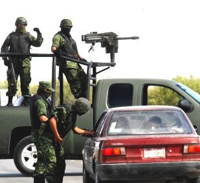
Mexico is not known for its start-up ventures, whether in legitimate business or in organized crime. What Telmex and Televisa are to the world of legal commerce — unrepentant monopolists or oligopolists, ruthlessly opposed to new players in their respective industries — the Sinaloa cartel and the Zetas are to the nation’s underworld. Yet that appears to be changing, at least in the criminal realm. The past 12 months in Mexico have been marked by a more significant upsurge of previously unknown groups than at any point in recent history. Among the new gangs: the Resistance, the New Generation Jalisco […]
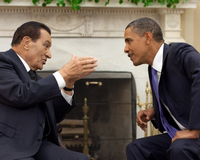
The Obama administration’s reaction to the dramatic events in Egypt has inspired many analogies in recent days. Its initial caution and clumsiness, followed by its conviction to “be on the right side of history,” reminded optimists of the Bush administration’s reaction in 1989 to the uprisings in Eastern Europe, for example, and pessimists of the Carter administration’s reaction a decade earlier to Iran’s revolution. The Obama administration’s air of ambivalence, however, evokes a perennial condition of international relations. Accustomed as most of us are to power hierarchies, we often overlook how difficult and complex actual relations can be between big […]
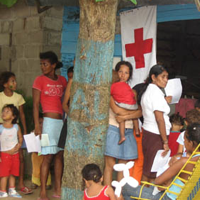
Looking down from the hilltops of Bogotá’s southern rim, a sea of shingled rooftops and cinderblock huts stretches toward the horizon. These ever-expanding slums are home to tens of thousands of internally displaced persons (IDPs), Colombians who have fled their homes elsewhere in the country to escape the country’s long-running armed conflict. Here, Lady Carabali, a mother of five, lives in a damp, ramshackle home made from pieces of wood and scrap metal, with no running water or electricity. She was driven from her small farm on the Pacific coast by paramilitary violence more than a decade ago. Each day, […]
